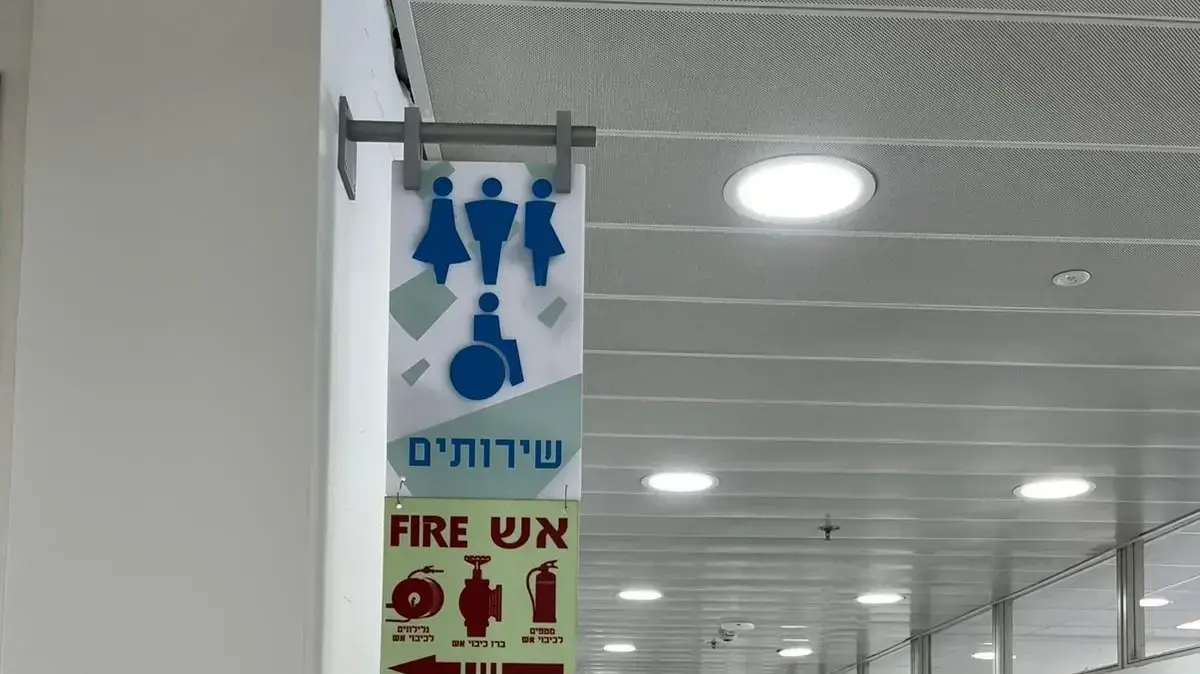The writer Flor Bárcenas Feria, in Bogotá, in April 2023.
My name, pierced in the legs of the brave and sad woman who went to the ocean with her dark skin and gave birth to me at the wrong time.
Tired I start in the world and begin to be decoration of space, the strange insect that bends beauty.
I am a historical contraction, I do not hide my face.
In the body of Flor Bárcenas Feria flourished a garden that does not stop growing and from there she got her name. Bárcenas was born 25 years ago in Monteria, a troubled city in Colombia and in the bosom of a family that was slow to understand his life experience. That's how in literature she found a safe place and a tool to explore herself as a woman, as a black woman, as a black and trans woman. Now, with a degree in Literature and a major in Creative Writing, she uses poetry to position herself in the world and transform hate speech against her community.
In his first book Bramidos de Agua Dulce (Escarabajo, 2020) he talks with the Sinú River. A tributary that crosses her hometown and that in her poetry collection becomes a character who carries with her the weight of death and violence against trans women in Montería.
A year ago he lives in Cali, where he moved to continue studying. A few days ago, during her visit to the Colombian capital as a guest on a panel at the Bogotá Book Fair (FILBo), she spoke with Americanas about how trans poetry combats literary hegemonies.
Question. How did your relationship with literature come about?
Answer. It comes from childhood, precisely because in my family, in my social context, I represented a kind of unknown. Writing was the first safe space, if you will, in which I could shape what I wanted to say. A space in which I could put my body to transit. Poetry for me has a very intimate relationship and is related to that desire to be and that desire for freedom that the people around me did not allow me. I grew up in a very violent family context, with a violent dad, a subordinate mom who was dealing with the tragedy of having to be with a violent husband and I couldn't burden her with my own tragedy.
After many situations I migrated and in the university, in another city, is when I begin to be aware of the power I have with the word. Before it was just a place to let off steam. For me, writing has to do with sitting down and watching the world run. It is not only the exercise of sitting down to write a poem or a text, it is deeper.
Q. Over the years Flor has been transformed, so does your poetry?
A. I always say: poetry saved me. It may be cliché, but it was. Poetry allowed me to look inward with a sharpness that I would not have allowed otherwise. That is, I believe in the power of poetry to change lives and to transform us, to agency from the word.
In that sense, my poetry is drinking all the time from my dreams. Now it has taken other directions and the transvestite experience is springing up much more. I am writing in that key claiming desire and stereotyping the only places where trans women have been placed. It has been a search that I am exploring from language and from my body. But above all because a trans woman is not expected to develop in spaces of literature.
Q. She says that as a child she did not imagine that literature could take her so far. What would you say to that little writer today?
A. The little flower was very fearful and was as if thrown into silence because she saw no possibility of listening, nor of resonance. If I could talk to him, I would tell him not to stop writing, not to forget that his hands can flourish poems. Since few transvestites have allowed us to agency our future, today I wish and fight for many more to do so, not only in literature, but in whatever they wish to be.
Q. He visited Bogotá to participate in this year's FILBo. How do you read his presence there?
A. They are only now beginning to consider important what trans people have to say. That shows when they invite me, as in this case, to talk about how my writing process has been. That I go to talk about it in a place like the FILBo is very powerful.
Q. Do you consider that there is a lack of references for trans children or for historically marginalized populations?
A. Yes. That is why it seems to me that there are more and more trans women, black, HIV-positive, writing and wanting to tell experiences from our corporalities. For me it is very valuable if another transvestite reads me and can find a way, identify with my writing or with what I am.
Q. What are your next steps as a poet?
A. The way we relate to our bodies, to our art, to our desire, to our sexuality, is something we can't tear away from ourselves. That's what I want and we have to write about because it runs through us. Even so, I think it is dangerous that we only speak out from that place of hypersexualization or that others want to approach us and our literature, only through those common places. Therefore, my proposal from poetry at this time is to show another a possible future for us. Imagine ourselves outside the places of exclusion, claim tenderness and love. You have to control the narrative and we have that responsibility because that's what we're going to leave to other generations, to future trans women and how they're going to see themselves, how they're going to see themselves in literature beyond that stereotypical place of sexualization. We are not just that. We are daughters, mothers, we write... We do and can do a thousand other things.
Our recommendations of the week:
And a suggestion to finish:
🎞️ A documentary: Life Beats Me
By Érika Rosete
The first minutes of the documentary Life Beats Me (2019) seem part of a well-achieved fiction, a syndrome invented for the time we have had to live, with the reality of mass migration, the resurgence of violence and the hope, always human, of finding refuge, relief and dignity outside and far away from the place we call home and that becomes from one moment to another in a hell. It all sounds like an exceptional idea, until it isn't. Until the film begins to show "real" and after checking it turns out, to our very bitter surprise that it exists. That the syndrome of resignation is a disease suffered by several hundred refugee children in Sweden, and whose first cases have been registered in the last years of the decade of the nineties.
The story, which lasts just 40 minutes and does not delve too deeply into the testimonies it shows, tells the way in which several refugee families, arrived in Sweden from several countries of the former Soviet Union and other points with internal conflicts, see how the youngest of the family stop eating. walk, and move by themselves. The boys and girls seem to be in a coma, without being so. Specialists who have tried to explain the reason for this condition agree that it is the response that the brain and body give to minors when they feel or are aware of the possibility of being deported to places where they have suffered traumatic events of violence. A lesson about the mechanisms that human beings have to survive. And perhaps, the beginning of an exploration of mental health and life's response to realities as complex as those we currently live in the world.
Life Overtakesme, its English title, can be seen on the Netflix platform.
This is the web version of Americanas, the newsletter of EL PAÍS América that addresses news and ideas with a gender perspective. To receive it every Sunday you can subscribe at this link.









/cloudfront-eu-central-1.images.arcpublishing.com/prisa/WWYGUBVSWZIBVK63EWZUZHJD44.jpg)





